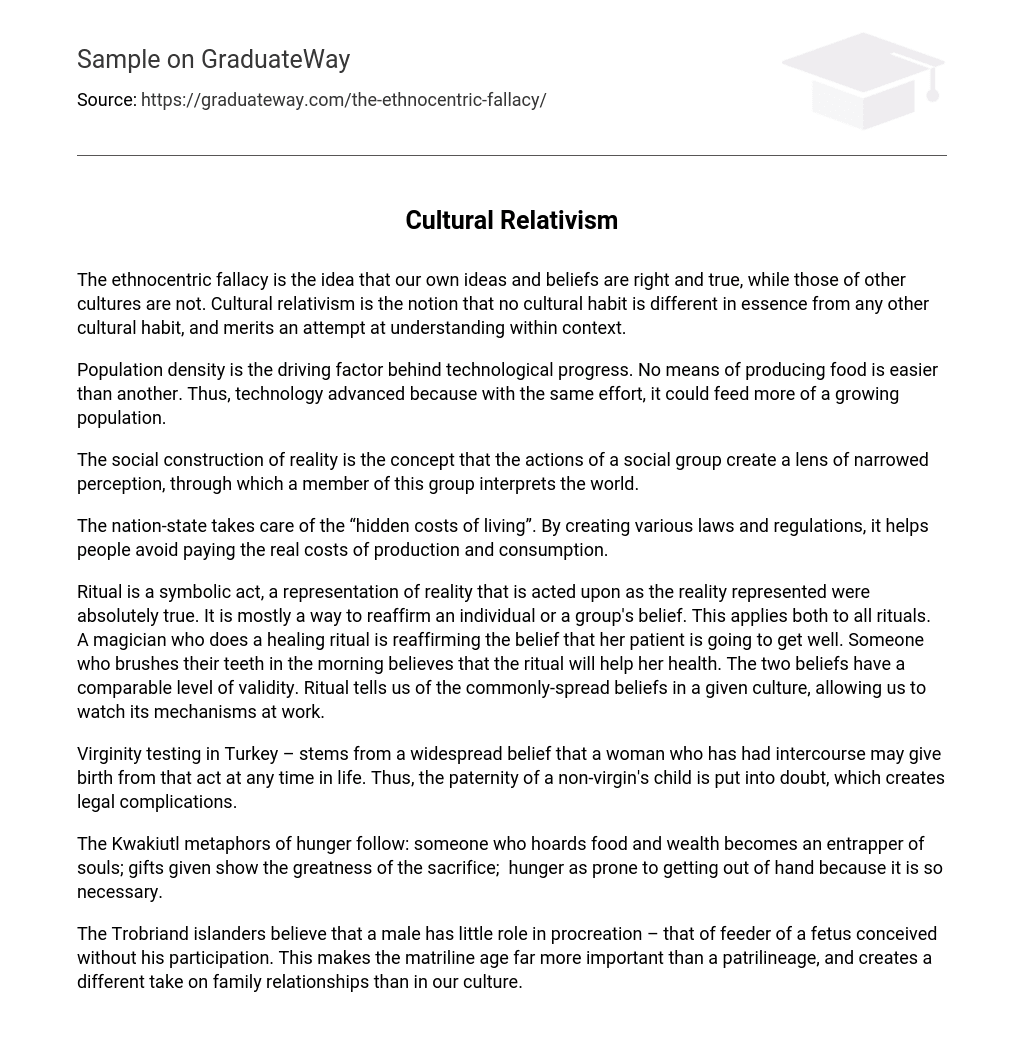The ethnocentric fallacy is the idea that our own ideas and beliefs are right and true, while those of other cultures are not. Cultural relativism is the notion that no cultural habit is different in essence from any other cultural habit, and merits an attempt at understanding within context.
Population density is the driving factor behind technological progress. No means of producing food is easier than another. Thus, technology advanced because with the same effort, it could feed more of a growing population.
The social construction of reality is the concept that the actions of a social group create a lens of narrowed perception, through which a member of this group interprets the world.
The nation-state takes care of the “hidden costs of living”. By creating various laws and regulations, it helps people avoid paying the real costs of production and consumption.
Ritual is a symbolic act, a representation of reality that is acted upon as the reality represented were absolutely true. It is mostly a way to reaffirm an individual or a group’s belief. This applies both to all rituals. A magician who does a healing ritual is reaffirming the belief that her patient is going to get well. Someone who brushes their teeth in the morning believes that the ritual will help her health. The two beliefs have a comparable level of validity. Ritual tells us of the commonly-spread beliefs in a given culture, allowing us to watch its mechanisms at work.
Virginity testing in Turkey – stems from a widespread belief that a woman who has had intercourse may give birth from that act at any time in life. Thus, the paternity of a non-virgin’s child is put into doubt, which creates legal complications.
The Kwakiutl metaphors of hunger follow: someone who hoards food and wealth becomes an entrapper of souls; gifts given show the greatness of the sacrifice; hunger as prone to getting out of hand because it is so necessary.
The Trobriand islanders believe that a male has little role in procreation – that of feeder of a fetus conceived without his participation. This makes the matriline age far more important than a patrilineage, and creates a different take on family relationships than in our culture.





